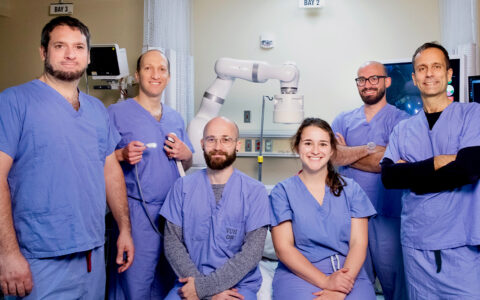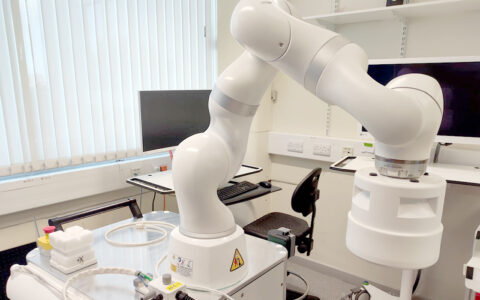A research study conducted at Vanderbilt University Medical Center found that patients with celiac disease (CD) are at increased risk of developing avoidant/restrictive food intake disorder (ARFID) as a comorbidity, said Dawn Adams, M.D., associate professor of medicine and director of the Celiac Disease Clinic at Vanderbilt.
Adams is among four Vanderbilt researchers on a team that reviewed records of 137 adult patients with CD along with their responses to an ARFID symptom checklist (ARFID-cl) survey administered between 2018 and 2020.
“Celiac patients are at high risk for developing ARFID,” Adams and her team concluded.
The results, published recently in Gastro Hep Advances, found that 57 percent of patients with CD also had symptoms of ARFID.
“Because the only current treatment for CD is a strict gluten-free diet, there is an increased awareness of food in this patient population that can lead to disordered eating habits, such as ARFID,” the authors wrote.
Food As the Enemy
CD causes the body’s autoimmune system to react negatively to gluten, a protein found in wheat, barley and rye. Exposure to gluten creates inflammation in the small bowel that can lead to an array of symptoms such as diarrhea, headache, nausea, fatigue, skin rash and others. Once diagnosed, CD becomes a lifelong chronic condition.
“When someone with celiac has a symptom, whether it’s migraines, joint pain or fatigue, they tend to look to food as the source,” Adams said.
Well-meaning advice can prompt patients with CD to further restrict what they consume. Whether the source is internet research, a friend’s personal experience, or even a physician’s recommendations – complications such as malnutrition, anxiety and depression may occur.
“Doctors who suggest that patients eliminate entire food categories to check for a positive effect on IBS [inflammatory bowel syndrome] can lead to years of imbalanced eating,” Adams explained. “We have to acknowledge that we are probably contributing to this disordered eating through this guidance.”
“Because the only current treatment for CD is a strict gluten-free diet, there is an increased awareness of food in this patient population that can lead to disordered eating habits, such as ARFID.”
Diagnosing ARFID
Differentiating between ARFID and other eating disorders is often tied to a patient’s medical diagnosis. “The restrictions are not at all related to body image. These patients are not trying to look thinner, which is significantly different from anorexia and bulimia,” Adams said.
“People say they feel like they can’t eat anything – but many don’t need to be so restrictive. Our clinic tries to help celiac patients add back more healthy gluten-free foods.”
The ARFID-cl tool, a self-report checklist for identifying probable and possible ARFID symptoms, was specifically designed for individuals with another, primary illness.
“The ARFID-cl was designed to discriminate between restrictive eating driven by medical illness and restrictive eating driven by fear of consequences that are excessive to the real risks or likely consequences of a medical condition that is appropriately managed,” the authors noted in the study.
Further Study Needed
Vanderbilt’s Celiac Disease Clinic is the only dedicated celiac center in the Southeast and is recognized by the Society for the Study of Celiac Disease for its combination of patient care and dedication to research.
Adams, an internist specializing in gastrointestinal diseases, studies how CD can trigger other types of restrictive eating beyond avoidance of gluten. The issue of food avoidance has been studied more extensively in children than adults, she says.
“Many patients with celiac disease have gone years without an appropriate diagnosis and finally learn that gluten was the source of many of their discomforts,” Adams said. “After this experience, it seems logical that people may be predisposed to search for another food to blame for future IBS symptoms.”
Food avoidance and restrictive diets – whether due to physical or emotional causes – can create an additional level of impairment, from nutritional deficits to social isolation to constraints on day-to-day functioning. In these types of cases, the focus is not on weight or looking thin.
“People say they feel like they can’t eat anything – but many don’t need to be so restrictive,” Adams said. “Our clinic tries to help celiac patients add back more healthy gluten-free foods.”





